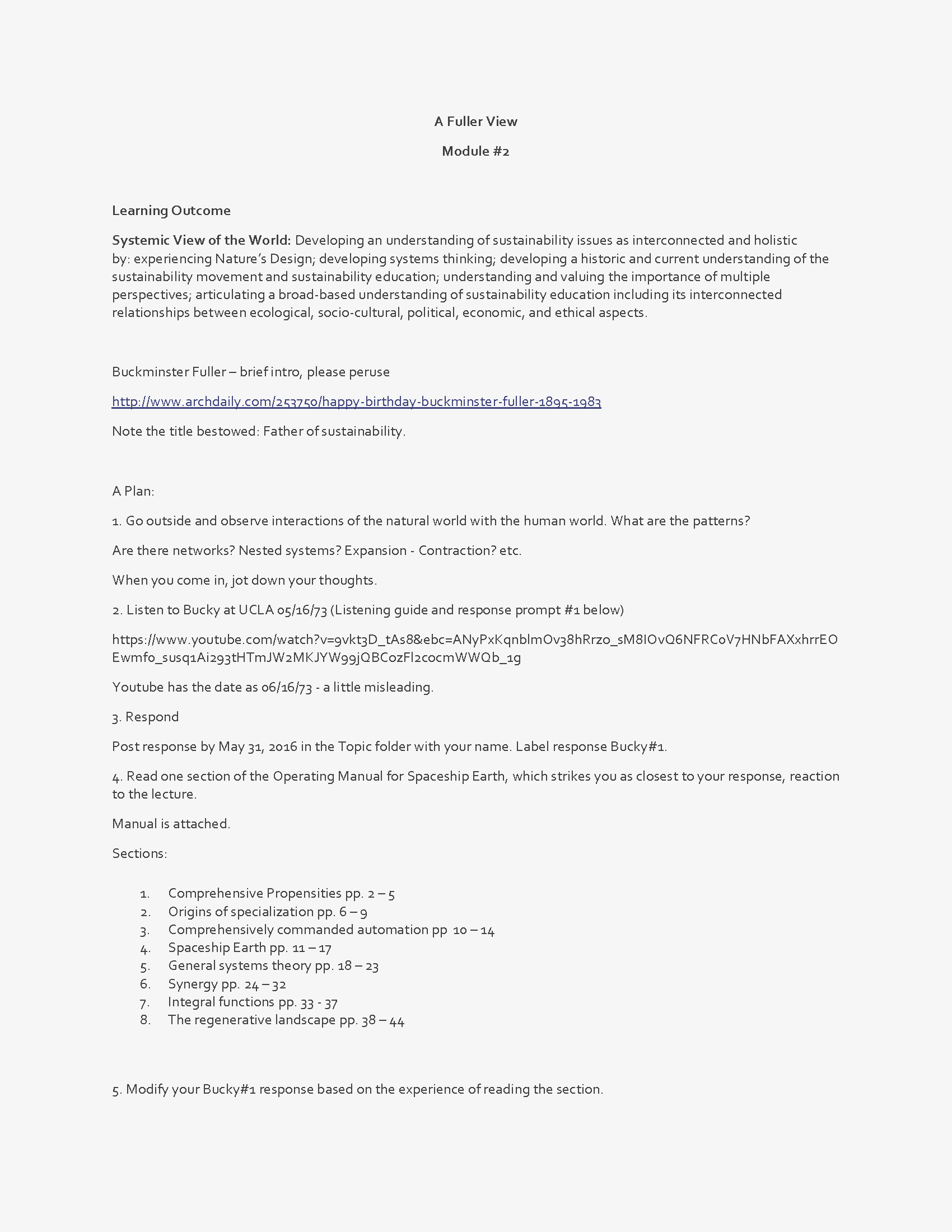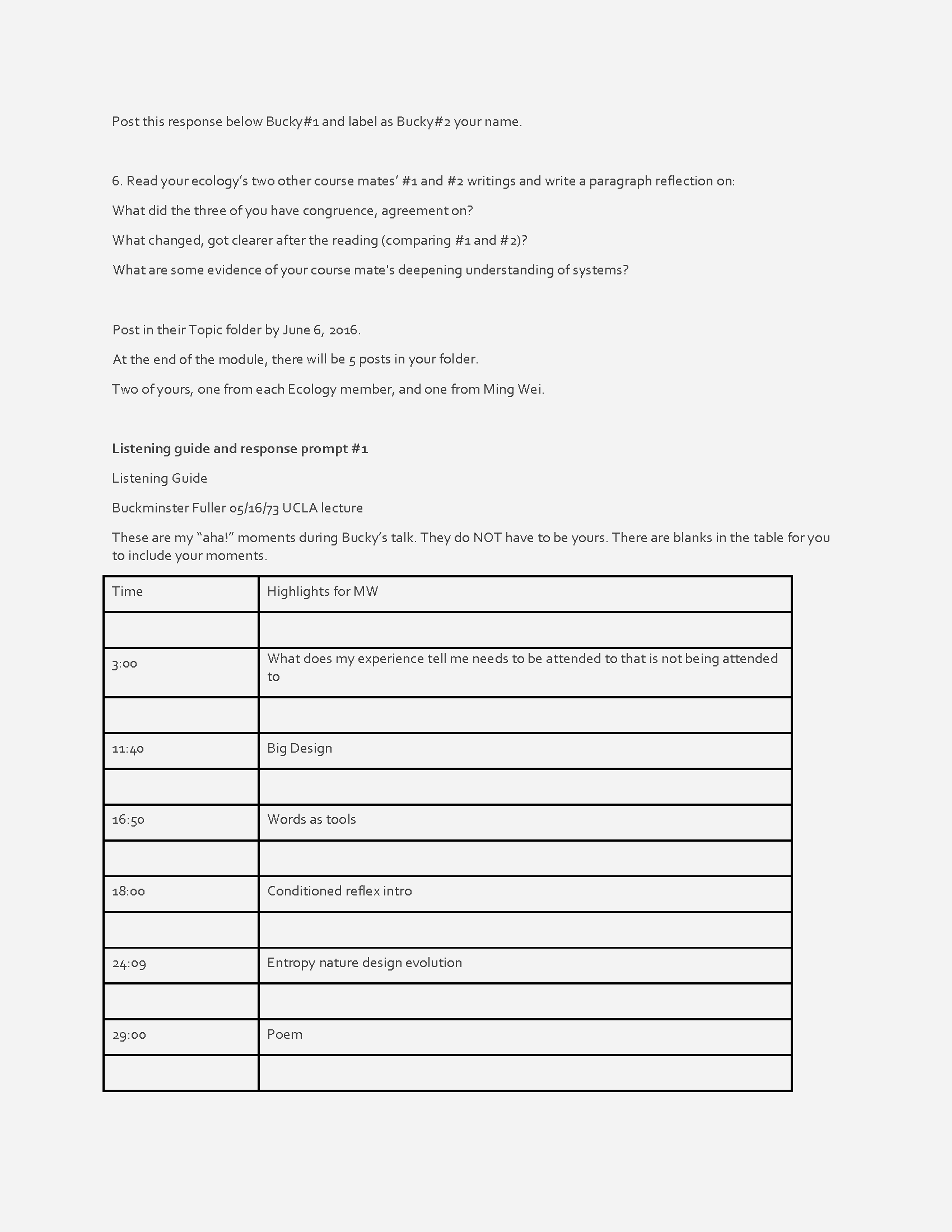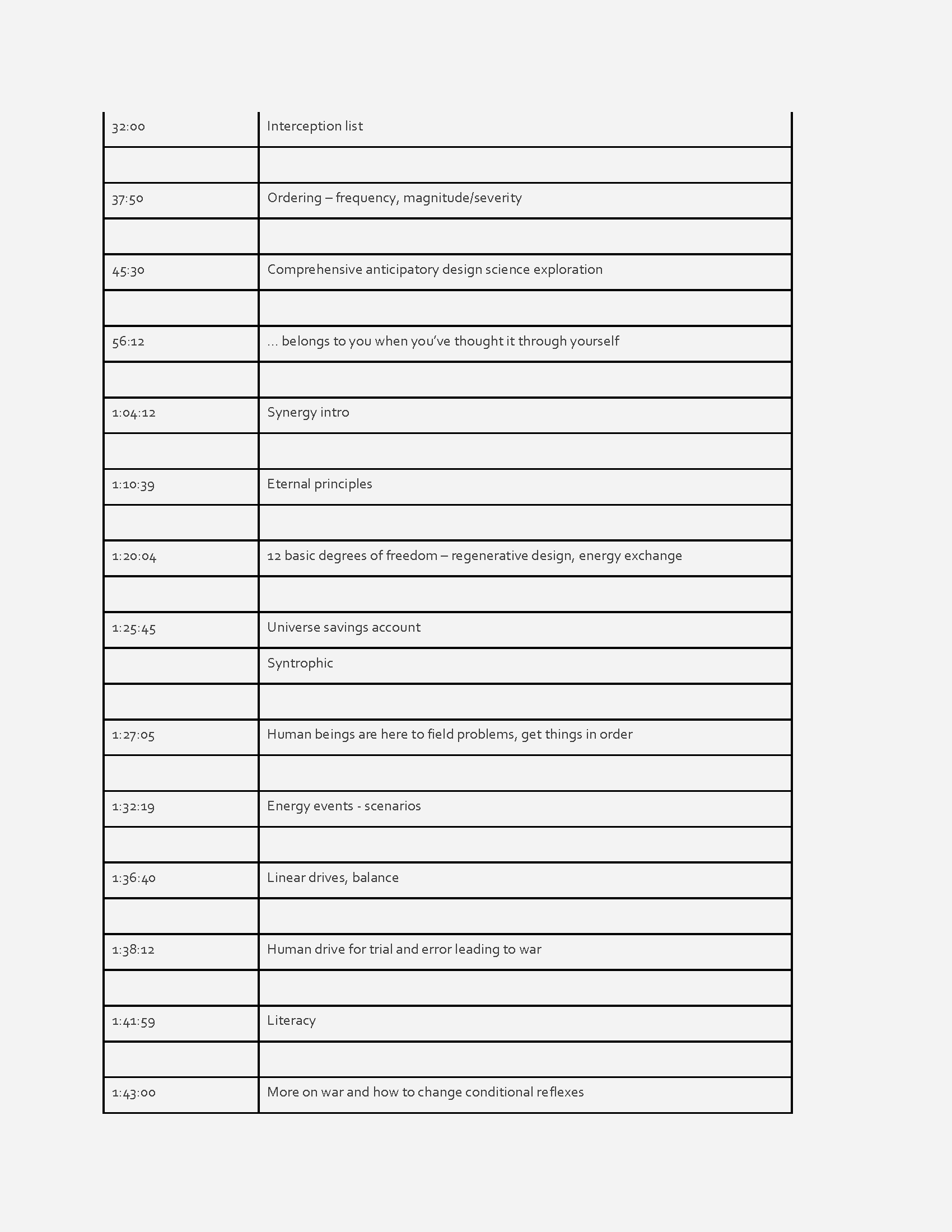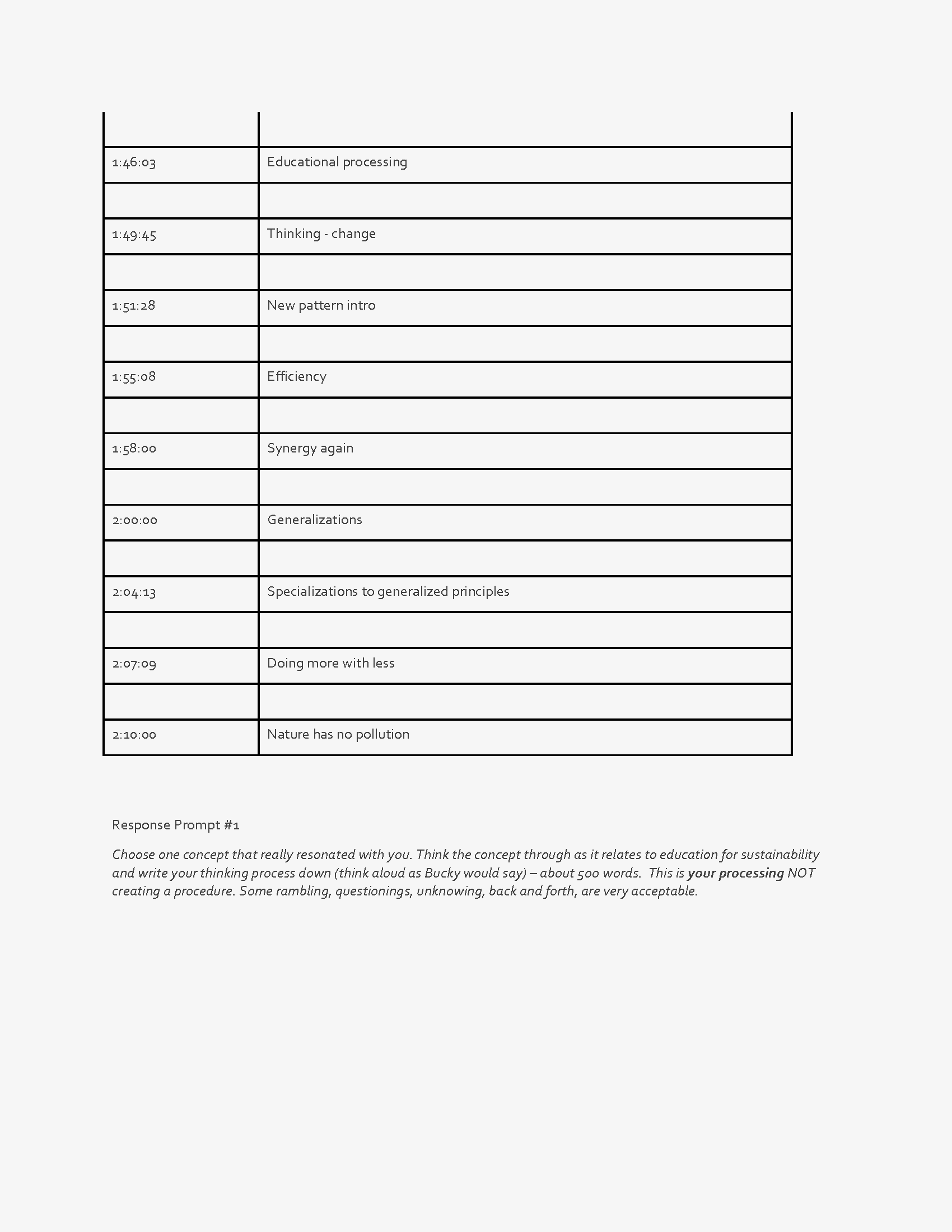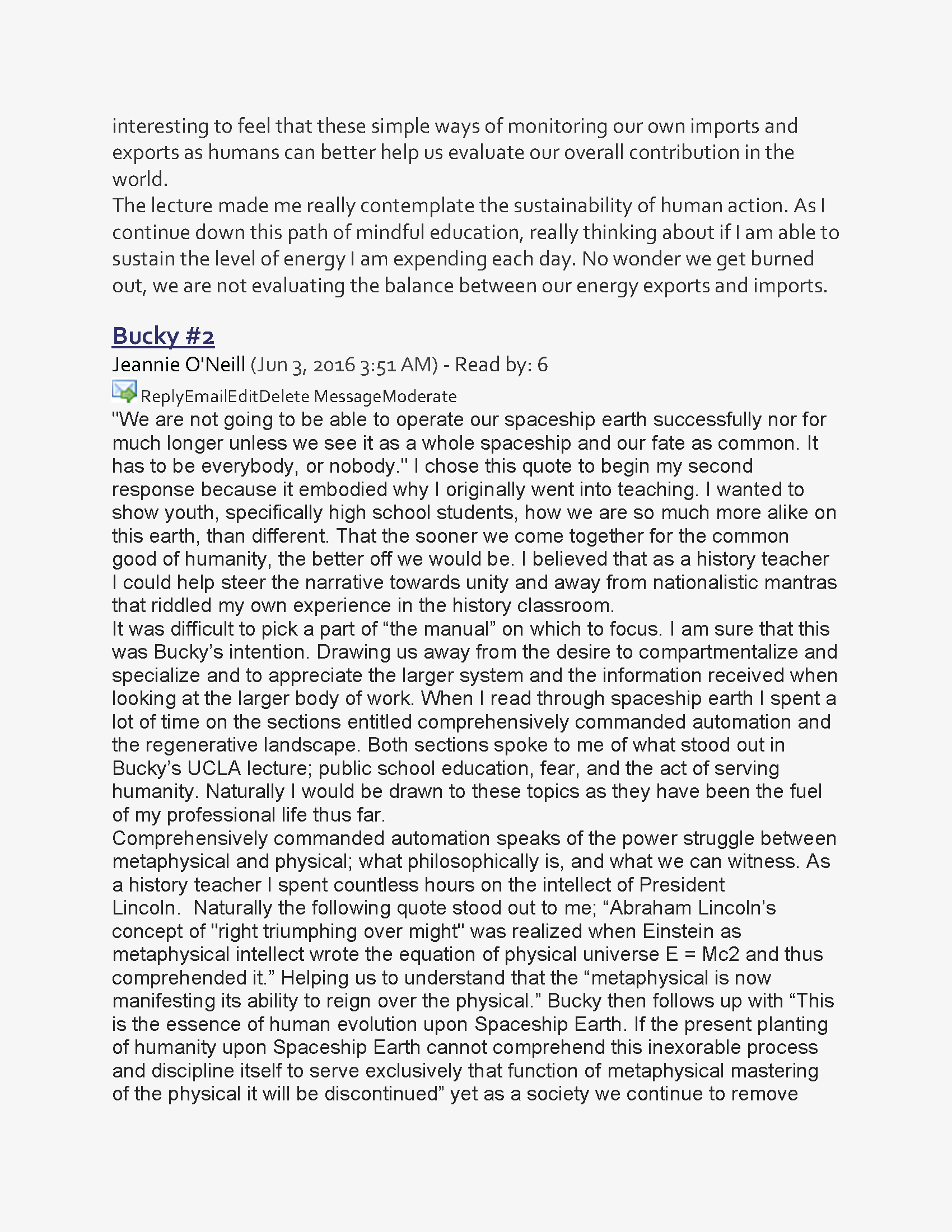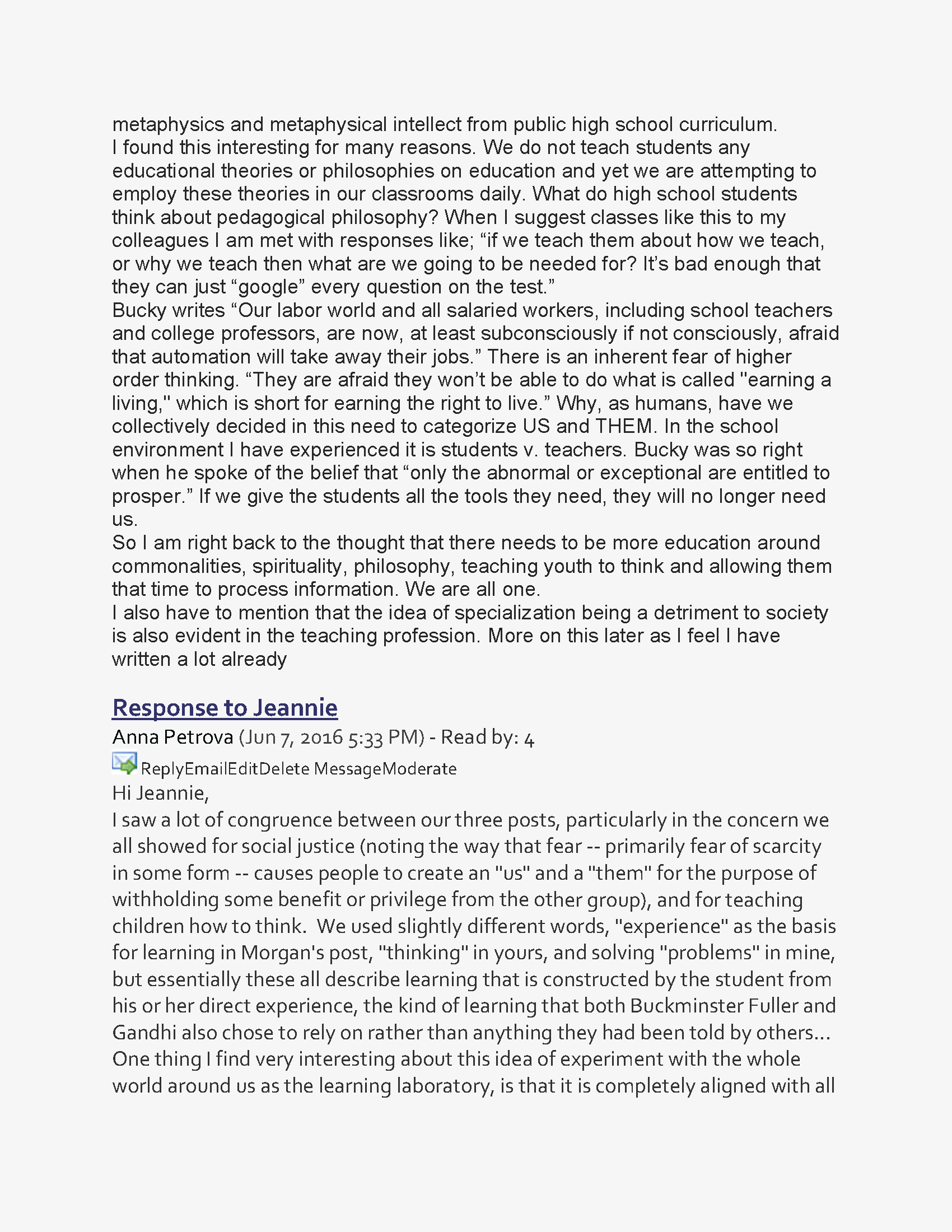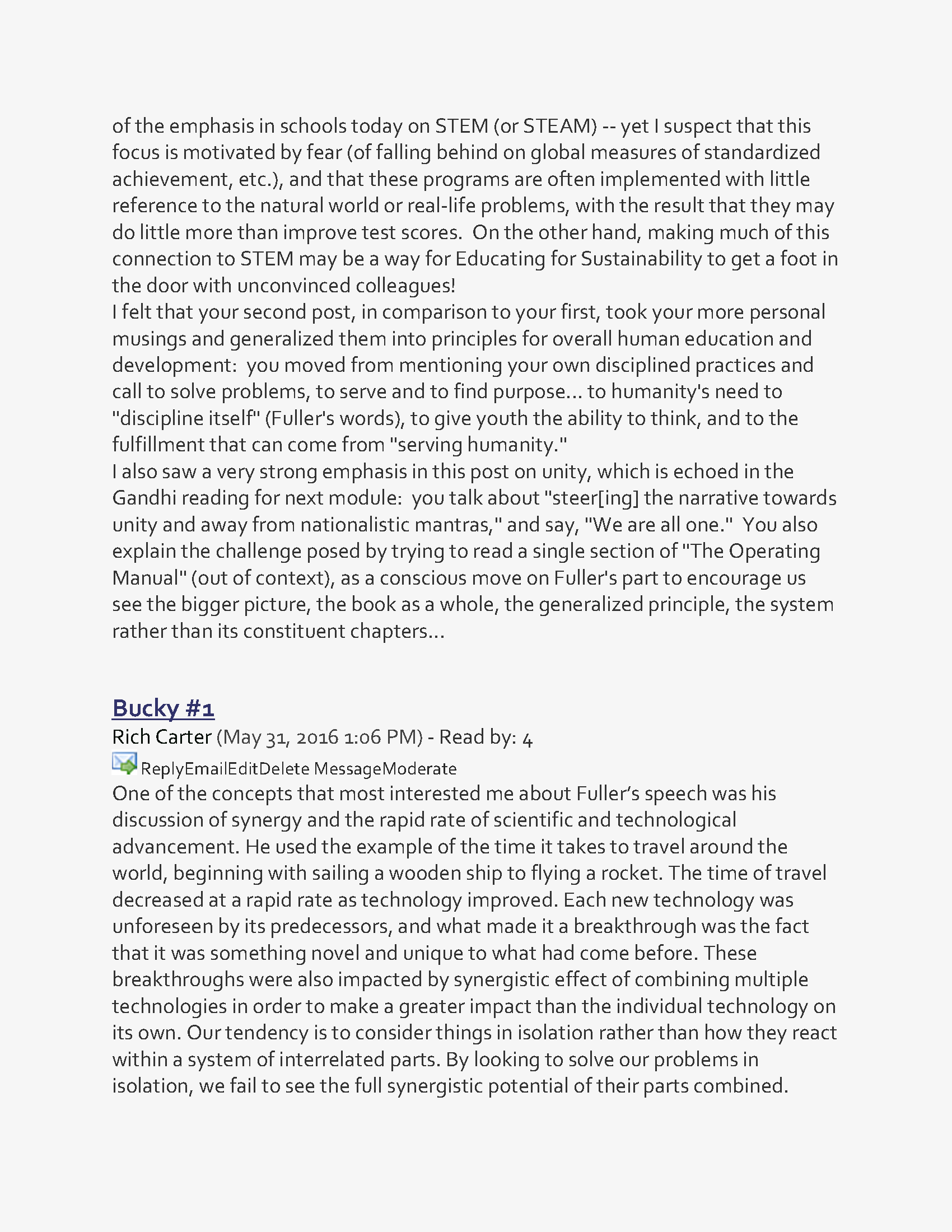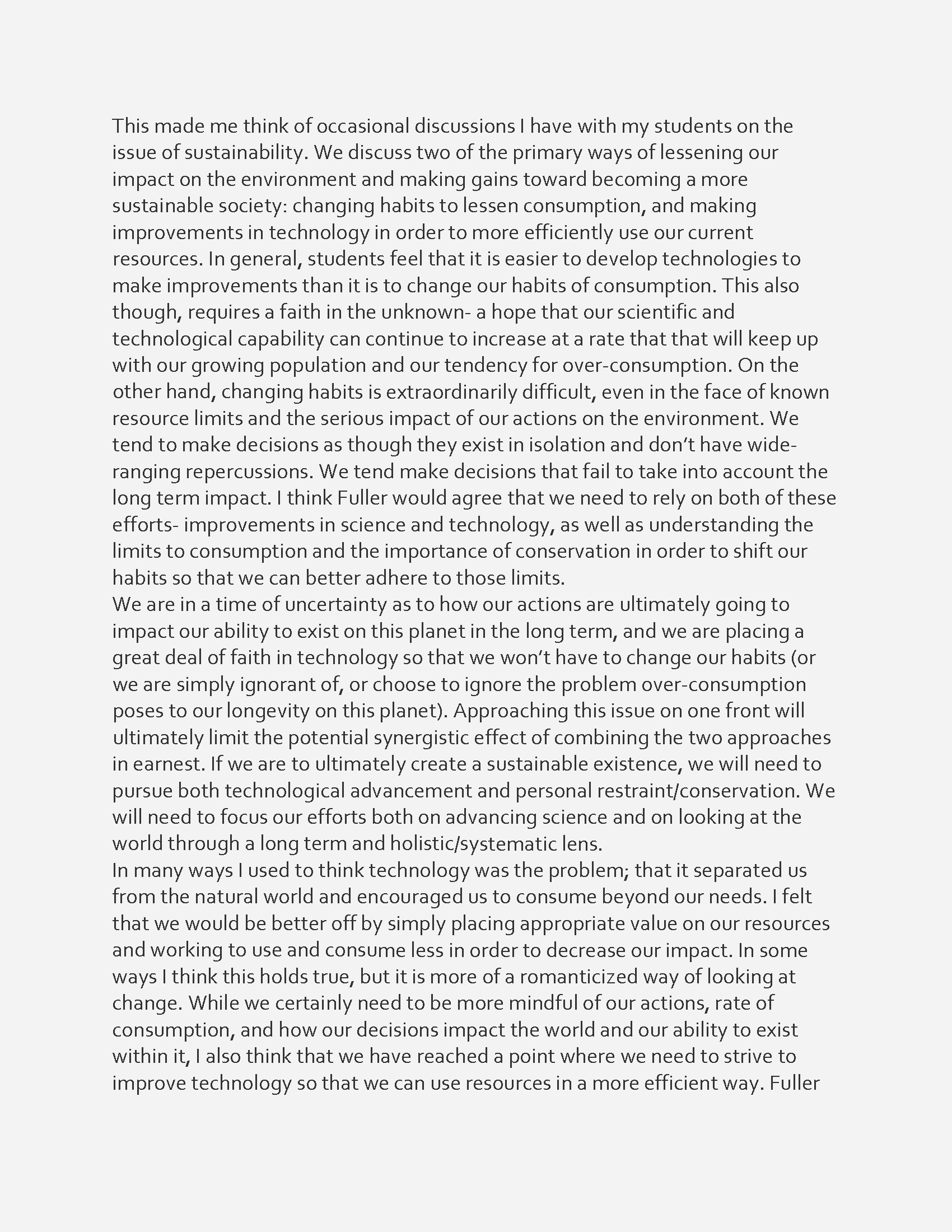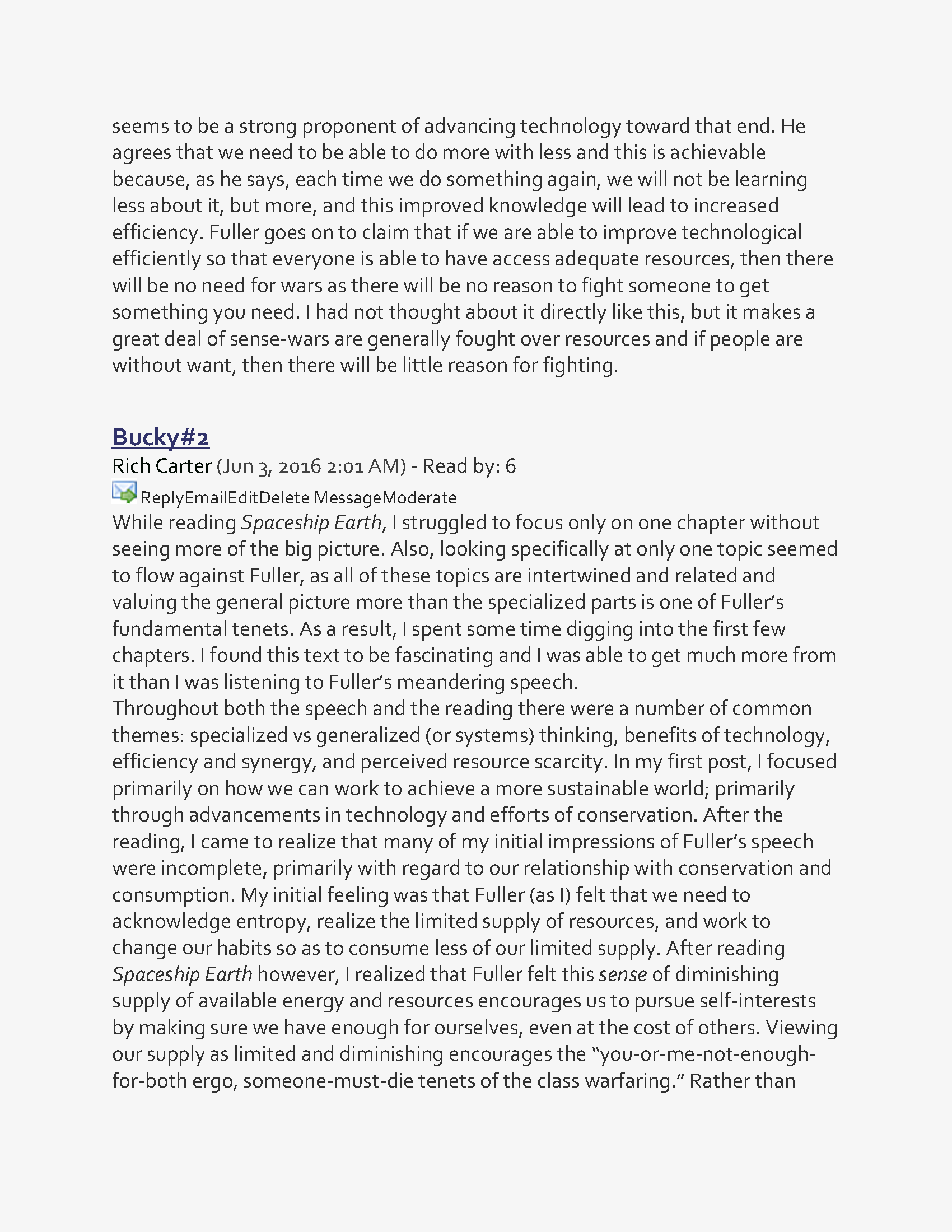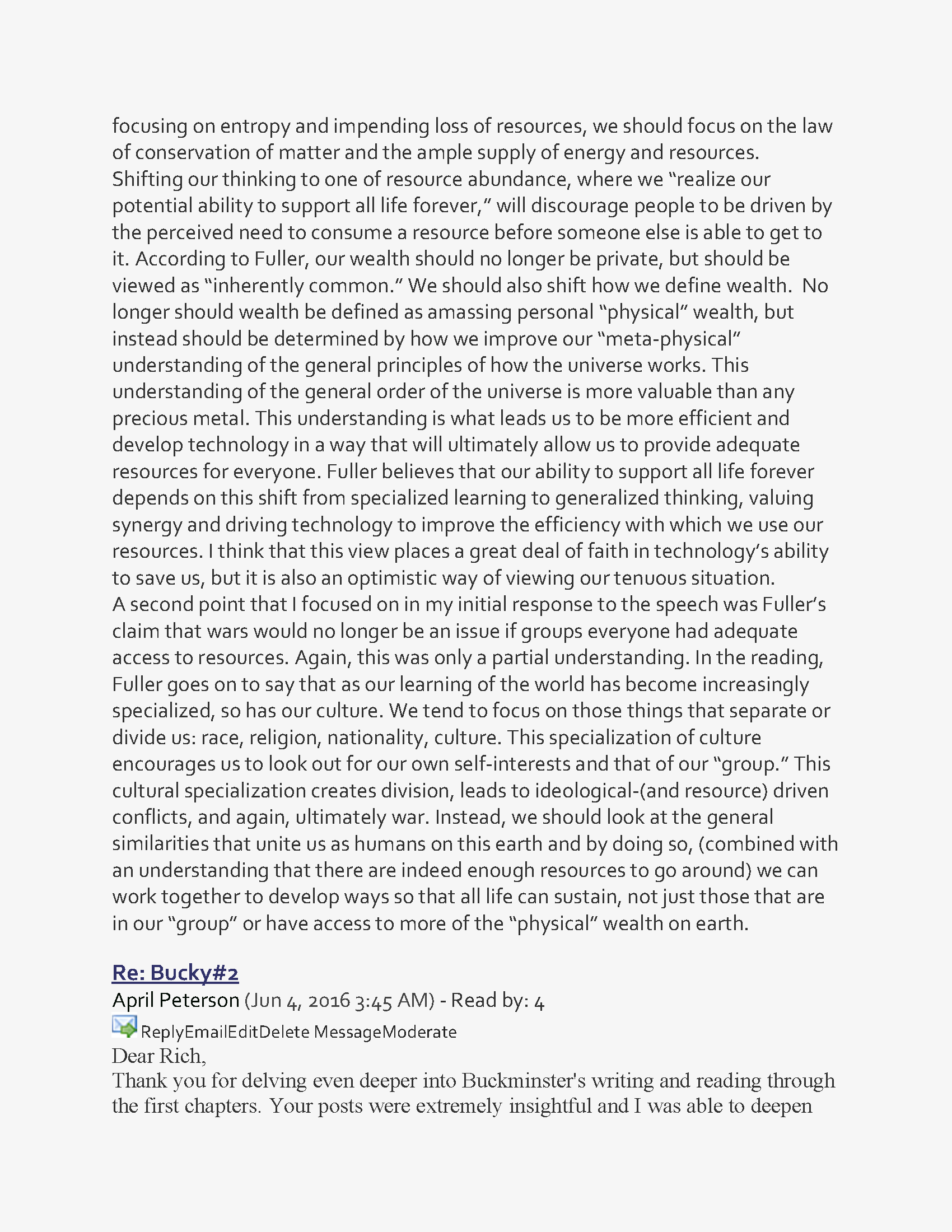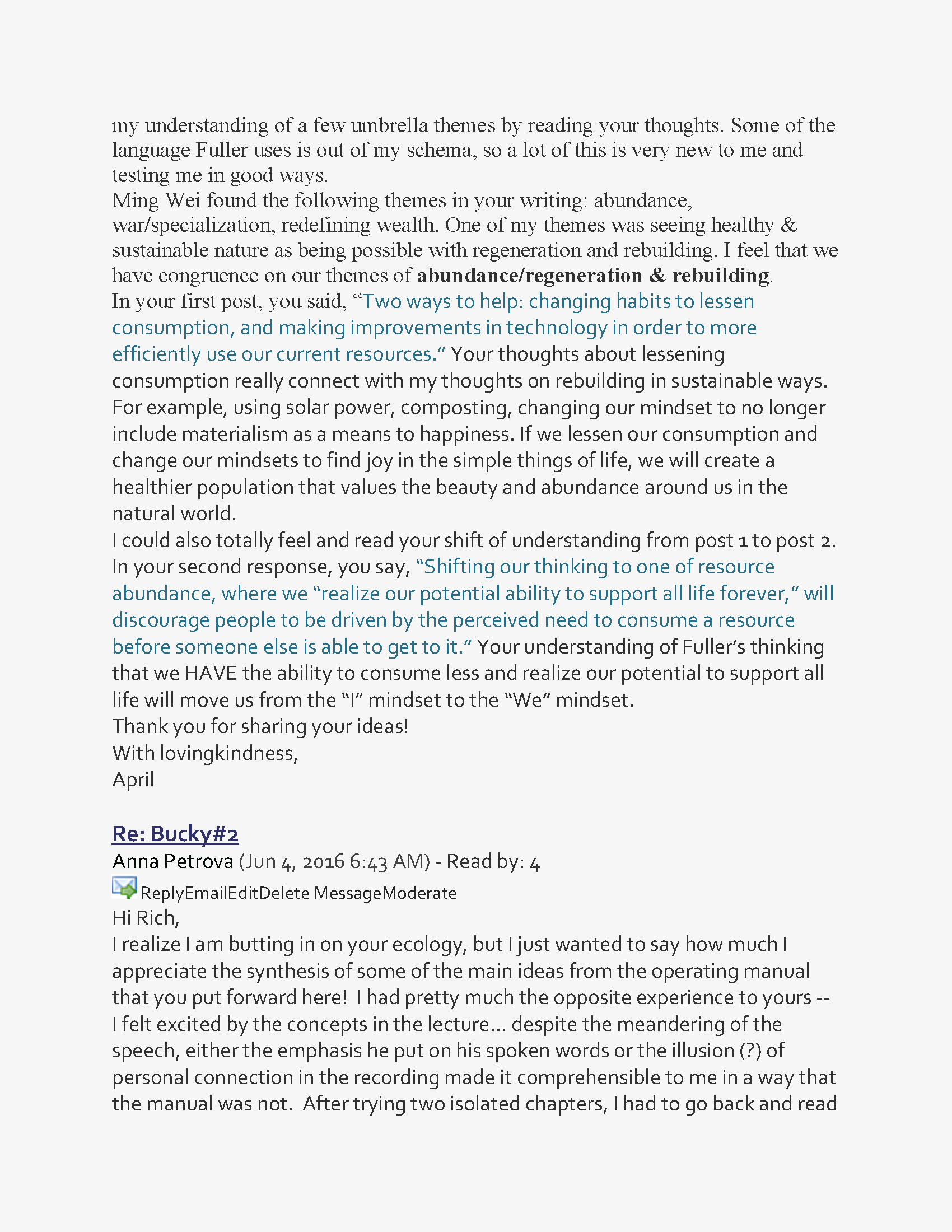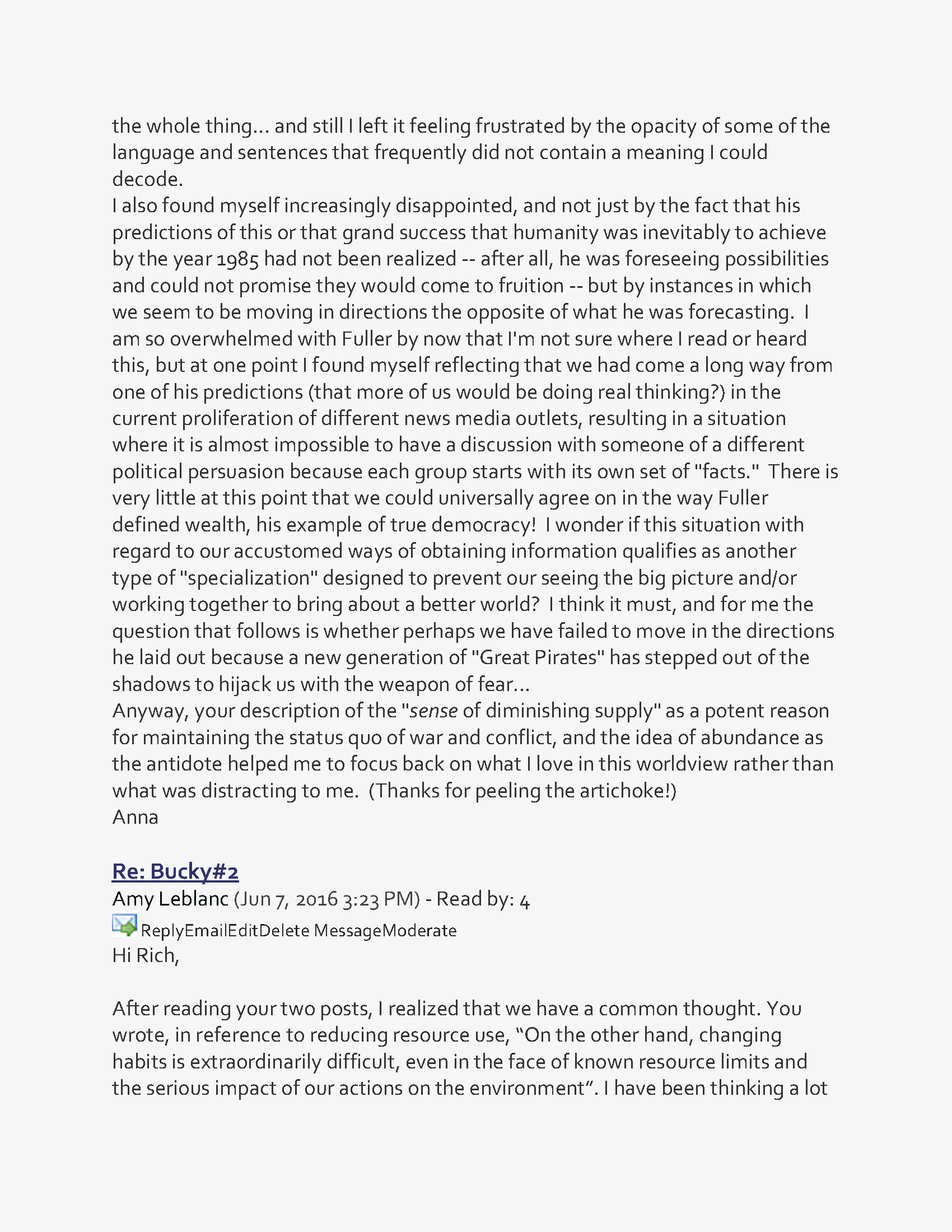Exemplar Type: COURSE
Title: A Systemic View of the World
Grades: Graduate
Discipline: Interdisciplinary
Submitted By: Ming Wei Koh
Learning Outcomes - Systemic View of the World
Developing an understanding of sustainability issues as interconnected and holistic by: experiencing Nature’s Design; developing systems thinking; developing a historic and current understanding of the sustainability movement and sustainability education; understanding and valuing the importance of multiple perspectives; articulating a broad‐based understanding of sustainability education including its interconnected relationships between ecological, socio‐cultural, political, economic, and ethical aspects.
BENCHMARKS REPRESENTED IN THIS EXEMPLAR
Big Ideas
There is an appropriate rate and scale for every living thing and they may not be the same in every circumstance
We are all in this together: We are interdependent on each other and on the natural systems
A sustainable solution solves more than one problem at a time and minimizes the creation of new problems
Every system is perfectly formed to get the results it gets
We all depend on and are responsible for “the commons”, i.e., what we share and hold in trust for future generations. Recognize and Protect the Commons
We are all responsible for the difference we make. Everything we do and everything we don’t do makes a difference
Applied Knowledge and Actions
Laws and Principles that govern the physical and biological world
The Many Ways of Knowing
System Dynamics and Change
Multiple Perspectives
Higher Order Thinking Skills
Anticipatory: Futures Thinking
Emergent: Design Thinking
Complex: [Living] Systems Thinking
Mindful: Questioning
Mindful: Reflective Thinking
Dispositions
Curious
Mindful
Open Minded
Risk Accepting
Place/Community Conscious
Applications and Actions
Honor the specific knowledge and skills that each person and culture brings
Learn from children and nature
Accept responsibility for the consequences of design
Contribute to the regenerative capacity of the systems upon which we depend
Count and value all the capital (natural, financial, human and social)
Design for whole systems integrity with ecological principles and physical laws in mind
Ask different questions and actively listen for the answer
Act wisely individually and collectively, with precaution and in context



